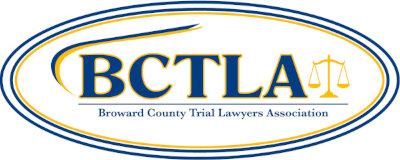Assignments of benefits (“AOB”) are useful tools that can be used by individuals who are in need of immediate help in certain situations. In the case of automobile accidents, AOBs can be utilized to receive immediate medical attention without first being disbursed personal injury protection benefits from automobile insurance companies. In situations where property has been damaged due to hurricanes, tornadoes, broken pipes, or various other perils, AOBs are a way to secure quick professional service to fix and remediate property damage problems. This post will discuss what an assignment of benefit is and how it is commonly used. It will also give an overview of some current issues dealing with AOBs.
Let’s say you were just involved in a car accident and you need medical attention. If you carried at least the basic automobile insurance coverage, personal injury protection (PIP) benefits, you can seek medical attention and use those PIP benefits for your treatment. When you present yourself to the medical provider, you will execute an AOB in the medical provider’s favor. An AOB allows the medical provider to treat you without charging you money (other than any PIP deductible) directly. The AOB gives your medical provider the right to be reimbursed by your insurance company from the PIP benefits. This means that, instead of billing you personally, the medical provider will bill the insurance company directly since you assigned your rights to the PIP benefits to the medical provider. In this scenario, the AOB was used to acquire quick medical attention following an automobile accident. Should your automobile insurance company decide to not pay the medical bills sent by the medical provider, or to pay less than the billed amount, the medical provider will have standing to sue the insurance provider for those benefits by virtue of the AOB, not you. For more information on PIP benefits/issues, be on the lookout for future posts. [If you are a medical provider in need of an attorney to recover PIP benefits for services provided, please give Schirmer Law a call and schedule a free consultation.]
In the property insurance field, AOBs are used by all sorts of service providers to expedite repairs on homes. AOBs are used by plumbers, water mitigation specialists, roofers, mold testers, mold remediation specialists, etc. The concept is similar to PIP benefits. Let’s say that you now suffered some kind of damage to your property. It could be due to a hurricane, a pipe bursting, a plumbing leak, a severe windstorm, or even an accident. You carry homeowner’s insurance that should cover the damage suffered by your property. As such, you call a service provider to come out to your house and fix/repair the damaged property. You tell the service provider that you have homeowner’s insurance that should cover the loss but you need the service provider to fix/repair the damaged property quickly and have no time to wait for the insurance company to reimburse you for the cost of repair. You then execute an AOB in favor of the service provider. The result is the same as with PIP benefits; now, the service provider is entitled to be paid by the insurance company directly instead of billing you. The insurance company may decide to not pay the bill or pay less than the bill but, due to the AOB, the service provider now has standing to sue the insurance company “in your shoes.”
CAUTION: There is one wrinkle that has recently evolved in the field of AOBs for homeowner’s insurance claims. The Fifth District Court of Appeals has issued an opinion relating to AOBs and their validities in conjunction with certain insurance policies. In Restoration 1 of Port St. Lucie a/a/o John and Liza Squitieri v. Ark Royal Ins. Co., No. 4D17-1113 (5th DCA September 5, 2018), the Fifth District was presented with a very specific issue—Is a limitation on AOBs, requiring insureds and mortgagees to execute AOBs, enforceable? In this case, John and Liza Squitieri suffered a loss on their property. After the loss, Liza Squitieri hired Restoration 1 to perform work on her property. Ms. Squitieri executed an AOB in favor of Restoration 1 without the signatures of either John Squitieri or PNC Bank (the mortgagee for the property). When Restoration 1 attempted to recover on the AOB bill, Ms. Squitieri’s homeowner’s insurance company, Ark Royal Insurance Company (Ark Royal), refused to honor the AOB due to a provision in the insurance policy that required the consent of all insureds, all additional insureds, and all mortgagee(s) named in the policy. PNC Bank was named in the policy as a mortgagee.
When Restoration 1 was not paid by Ark Royal, Restoration 1 filed a declaratory judgment action arguing that the anti-assignment provision in the subject policy was illegal. The trial court dismissed the declaratory judgment action, granting Ark Royal’s motion to dismiss. Restoration 1 appealed. The Fifth District Court of Appeals affirmed the trial court’s dismissal. The Fifth District Court of Appeals held that the assignment limitation provision in the subject policy was clear, unambiguous, and was not preempted by prior case law. The Fifth District Court of Appeals did not determine whether the assignment limitation provision was against public policy and left that determination to the legislature.
In short, Ark Royal’s policy provision that mandated named mortgagees to consent to any assignment of benefits was held to be a valid provision—one which was not complied with by Restoration 1 and Mr. and Ms. Squitieri.
This case serves as a warning to all homeowners and service providers. When executing AOBs, be certain of who needs to consent to the AOB for the AOB to be valid. As always, if any homeowners or service providers are unsure of any AOB issues, give Schirmer Law a call and we will be more than happy to help you navigate the world of AOBs.
At Schirmer Law, your loss is our concern.
DISCLAIMER: This article is not intended to substitute legal advice. For more information on assignments of benefits or related issues, please contact Schirmer Law directly and ask to speak with an attorney.









